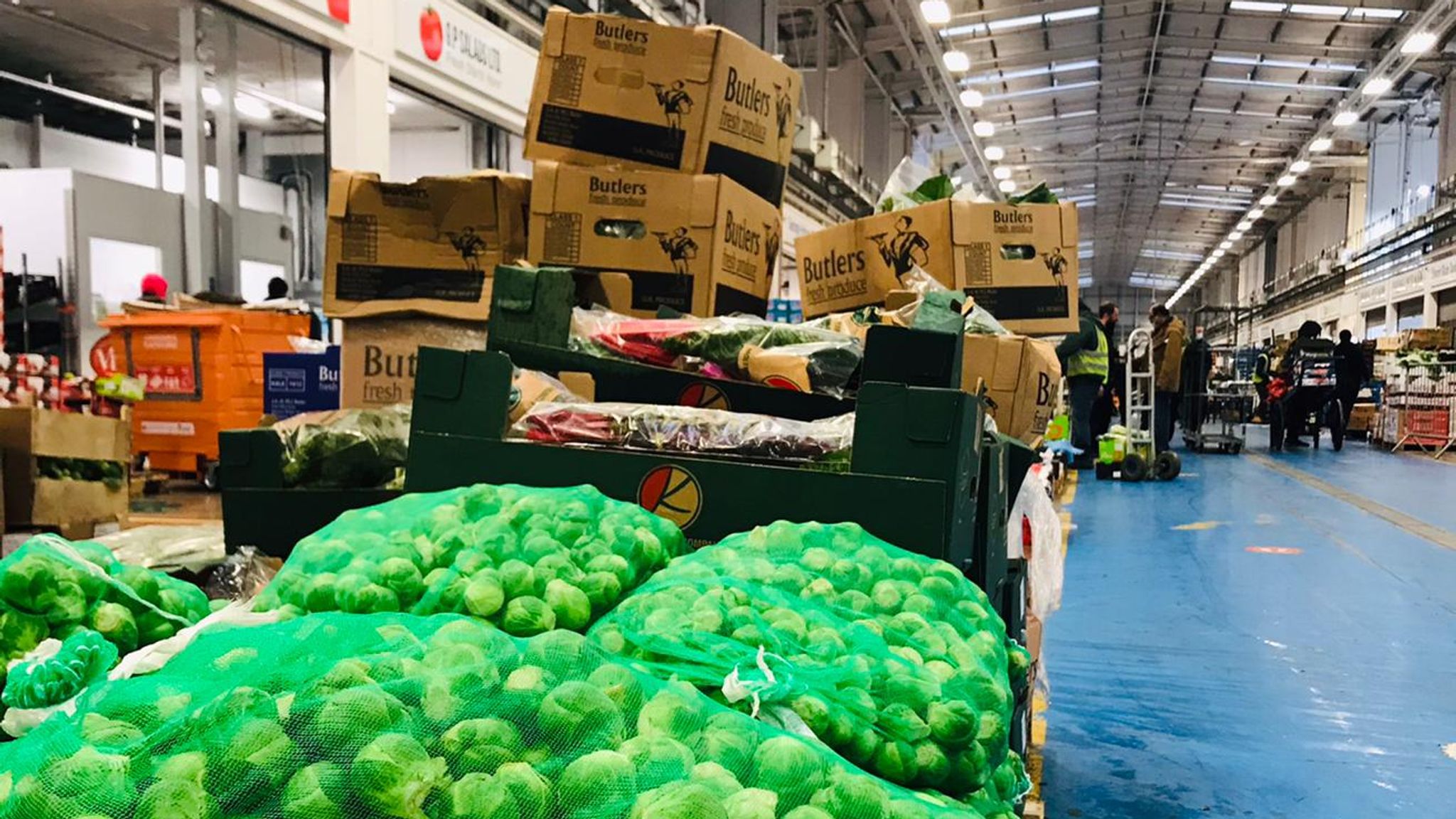The Bow Group has published a new paper examining the current state of the UK’s food supply and its reliance on imports in the context of the coronavirus crisis, entitled: “The United Kingdom’s Food Supplies & the Impact of Covid 19″.
“If UK imports fall by just 13 percent and domestic production also falls by 13 percent annually, very realistic figures in the context of coronavirus or any other global crisis, British people will shockingly be at real risk of running out of food. It is very likely that even with a smaller reduction of 5-10 percent of production/imports the public would have to cut down on many current staples and the cost of many types of food would skyrocket.
This important Bow Group report lays these startling facts bare, and calls on the government to take urgent action to prepare for such a crisis and restructure.”
Ben Harris-Quinney, Chairman, The Bow Group
Key Facts
- The UK currently imports 50.07% of its food from overseas and produces 49.93% domestically.
- If you count raw ingredients as opposed to final products, however, then estimates project the UK relies on imports for as much as 80% of its food production.
- Based upon current levels of consumption if the UK food supply decreases by more than 27.7% annually then the UK will be at risk of running out of food.
- This means that if domestic food production reduces by more than 13.83% and imports fall by more than 13.86% annually, absent stockpiles the UK will soon run out of food supplies.
- Based on current levels of consumption & domestic production the amount we import from abroad can fall from 50.07% to 30.92%, but no further.
- Food waste in the UK currently accounts for an average of 38.38% of the food supply.
- If we can completely cut food waste in the UK and change our consumption levels to subsistence (1400 calories) rather than current levels (2000 calories) we can afford for our overall food supply to decrease by a much larger 71.7% before the UK will enter per capita caloric deficit (starvation).
- This means that if we cut waste and switch to subsistence levels domestic food production can reduce by more than 35.7% and imports can fall by more than 35.9% before the UK will enter per capita caloric deficit (starvation).
- If food imports to the UK stop completely domestic production could not drop by more than 23.55% for subsistence levels of food supply to be achieved.
- The fallout of the 2008 economic crisis saw UK food prices rise by more than 30%, the fallout from coronavirus is likely to see even higher price rises.
- The UK export figures equate to 44.05% of national production.
- In the event the UK is able to cut food waste and restructure to re-route all current food exports to the domestic market then we would potentially be able to provide the population with 100%/all of its most basic subsistence food needs.
- We call on the government to urgently review the self-sufficiency of our food supply network, and increase stockpiling to cope with potential supply chain interruptions in the future that are now very foreseeable in the context of coronavirus.
Proposals
We call for two strands of action from the government:
- The first is that the UK Government must become more proactive in buying up and stockpiling raw materials and non-perishables on the international market to ensure stockpiles remain comfortably ahead of potential demand for the foreseeable future.
- The second is a series of long-term reforms towards making the UK economy more self-reliant, which involves a reconfiguration in favour of domestic food production. These reforms are as follows:
1. Land Army Scheme: At present, the reliance on cheap, foreign labour is undermining British self-sufficiency. The call for a ‘Land Army’ in response to the coronavirus and the potential of fruit going unpicked in fields is a step in the right direction but is too contingent. We propose that a system be set up in which students are incentivised to pick fruit in the summer terms, in exchange for alterations to their loans, and in which long-term unemployed men and women deemed ‘fit for work’ be prioritised for seasonal employment.
2. Land Investment Scheme: The current Enterprise Investment Scheme (EIS) in the UK includes ‘farming or market gardening’ in its list of non-qualifying trades, where such activity makes up 20% or more of the trade. This policy needs to be addressed; either farming must be removed from the list of non-qualifying trades, or an alternative scheme designed to assist the establishment of, provision of equipment for, and education of smallholders must be established.
3. Expansion of Abattoirs: Since 1971, the number of red meat abattoirs in the UK has declined from 1,890 to just 249. The consequence of this is the cost of preparation of meat in the UK has increased drastically, due to transportation and shortage of expertise. We propose, to remedy this, a system in which state-owned abattoirs are opened in prominent farming counties, to reduce travel costs and facilitate the increase in meat preparation capacity.
4. Agricultural Modernisation: Looking to the Netherlands as a model, agriculture can modernise in the UK by introducing large-scale AI controlled greenhouse complexes that hugely increase yield. The artificial climate in which potatoes, lettuces and tomatoes grow would be easily replicable in the similar conditions of Norfolk, and many other under-utilised areas of the UK.
5. Subsidising & Incentivising Exporters: Subsidising and incentivising food producers in the UK that currently export abroad to refocus on the domestic market.
6. Cutting Food Waste: An information campaign to cut food waste and inform the public of how to best meet their nutritional needs with less food.
Quotes:
“Coronavirus not only presents an immediate problem, with lockdown at home and abroad leading to a sharp decline in food production and transport, it also raises long term questions about global trade and food supply, and the extent we can continue to rely so heavily on foreign imports to feed the British public. Our domestic food production is not just dangerously low in itself, but it is also dependent on over-stretched and fragile international & domestic supply chains. This will be an issue not just for the duration of the coronavirus pandemic itself, but for long afterwards. As with WW2, rationing continued over a decade after the war had ended.
If UK imports fall by just 13 percent and domestic production also falls by 13 percent annually, very realistic figures in the context of coronavirus or any other global crisis, British people will shockingly be at real risk of running out of food. It is very likely that even with a smaller reduction of 5-10 percent of production/imports the public would have to cut down on many current staples and the cost of many types of food would skyrocket.
This important Bow Group report lays these startling facts bare and calls on the government to take urgent action to prepare for such a crisis and restructure.”
Ben Harris-Quinney, Chairman, The Bow Group
“In Britain we are dangerously reliant on food imports, both in terms of products and raw ingredients. If imports ceased entirely, Britons would be forced to eat much less of their favourite foods; people would need to eat half of their current diet of fruit and vegetables, for instance.
Given the current coronavirus pandemic, this threat is startlingly possible. The reliance on imports is made worse by the fragile supply chains, susceptible to disruption, that we have taken for granted in recent years. Some of the worst-hit European nations – especially Spain – provide a significant amount of our fruit and vegetable imports, meaning we will almost definitely see imports fall and food prices rise in the coming months & years.”
Jake Scott, author of “The United Kingdom’s Food Supplies & the Impact of Covid 19”

